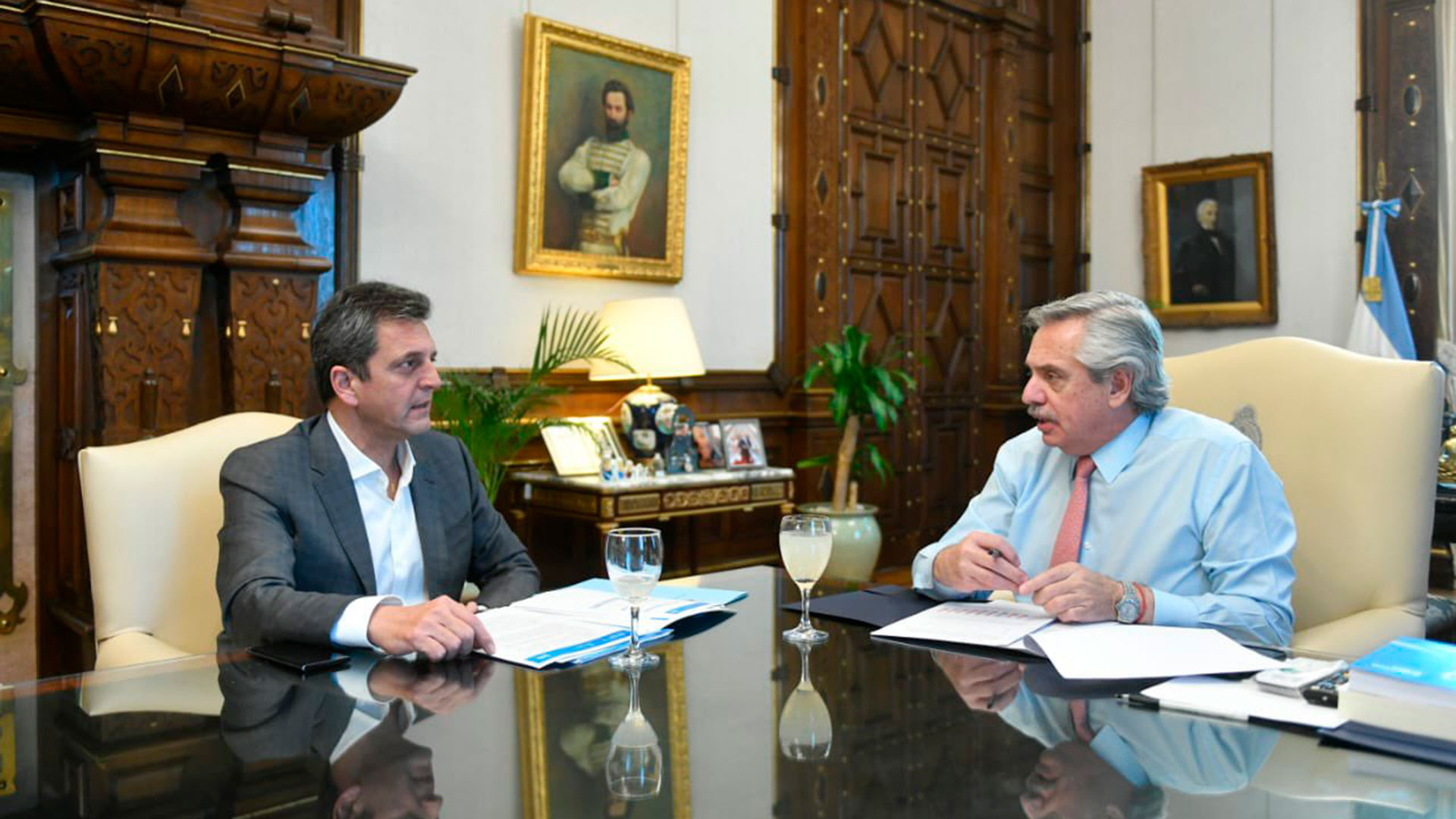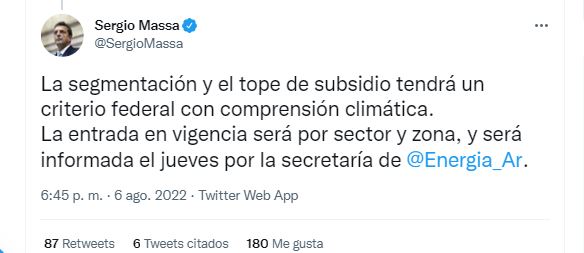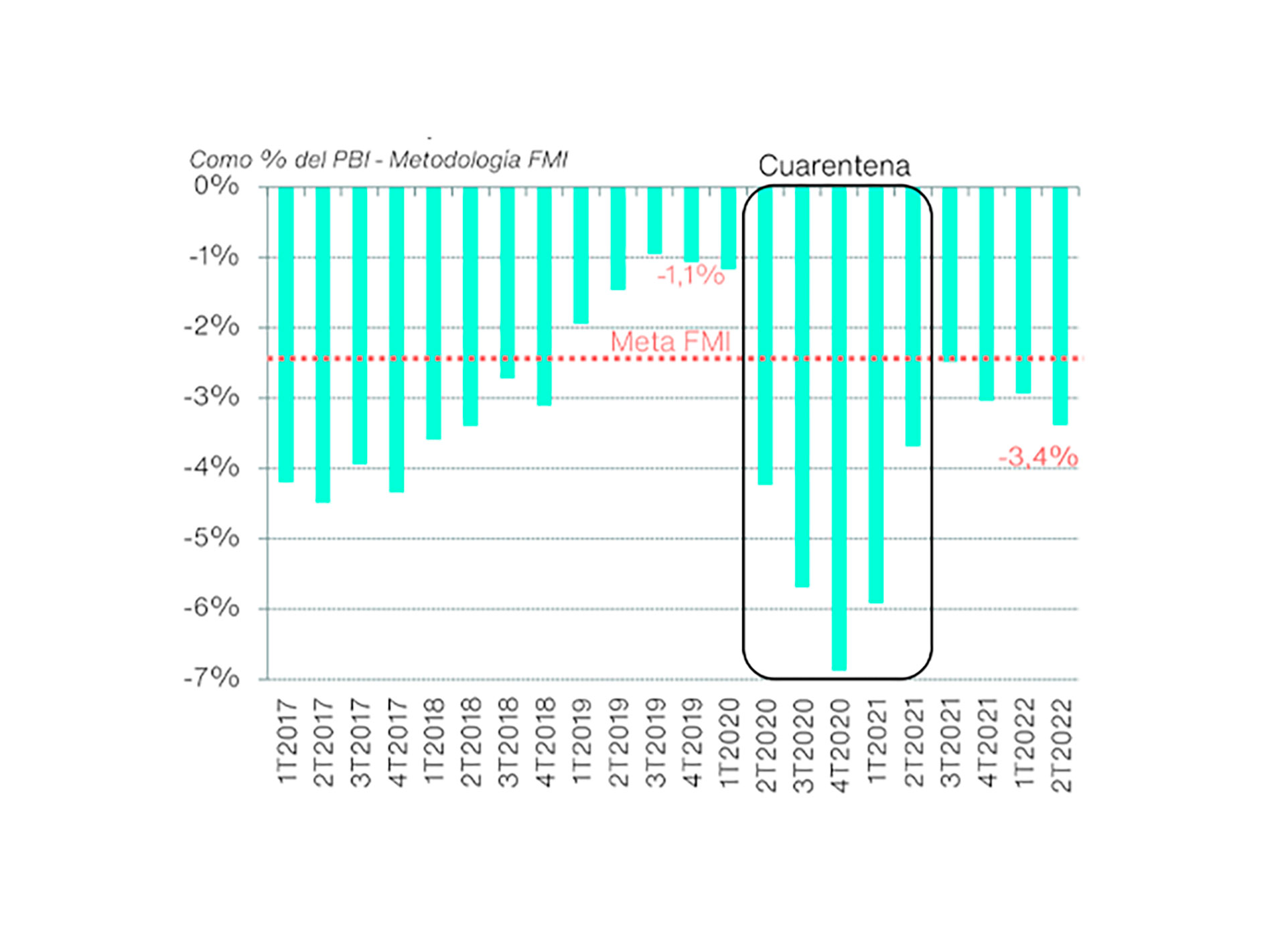
The new Minister of Economy, Serge Massagave details this Saturday afternoon about its roadmap for fiscal regulation and international financing. As he detailed through a series of tweets, among the measures he reiterated that there will be no more issuance for financing until the end of the year, as had already been anticipated, and that on Monday the refunds to the Central Bank of the Argentine Republic will begin. In addition, he referred to the segmentation of subsidies for electricity and gas rates and He announced that he summoned those responsible for the administration of the ministries to a meeting scheduled for next Tuesday to give them the programming until the end of the year.
“Just 48 hours ago we started our task with responsibility and commitment. I want to make a report of these first hours with the idea that beyond any third-party speculation, they know what we are doing”, commented Massa in the first of his posts through the social network.
Later, He pointed out that he summoned all those responsible for the administration of ministries on Tuesday to “give them the programming until the end of the year, so that they know the investment priorities and the spending ceilings.”.

“We have already communicated both decisions. There will be no more issuance for financing until the end of the year and on Monday we will start refunds to the BCRA”, he commented. He then shared a notification on transitory advances for financing of the National Treasury in which it is indicated that it is detailed that “you must refrain from this and until further notice, from requesting advances without prejudice to previously operated maturities.
“In coordination with all sectors of the public administration, we began setting limits on the entry of personnel, and as of September 1, each affidavit must be published with public access on the INDEC page,” added the official on the freezing of the State staff in all sectors of public administration.
“If we save water and energy and order the subsidy distribution system, protecting the social rate, the State will save 500,000 million pesos a year,” he also indicated when giving details on the segmentation and removal of subsidies. On this point, he stated: “Each area was notified of the operation of the regime. Consumption caps are added to segmentation to promote resource savings and a more progressive system of subsidies. Whoever consumes less or has less income has less pay, whoever consumes more or has more income, pays more”. He also commented that the entry into force will be by sector and zone, and will be informed on Thursday by the Secretary of Energy.
Regarding the regimes for the agribusiness, mining, hydrocarbons and knowledge economy sectors that he advanced in his first press conference in office, he detailed: “We finished the decree and elevated it to the Presidency, of the first of the regimes, linked to the sector hydrocarbons. The increase in our exports in this sector is key in a world that is experiencing a fierce energy crisis”.
“As we have detected mechanisms of abuse with under-invoicing of imports and over-invoicing of exports, on Friday AFIP and Customs began the notifications”, completed the Minister of Economy.
As Infobae advanced today, the expectation of the new economic leadership for the coming months is of a certain slowdown in economic activity and, hand in hand with that trend, a desired drop in the level of monthly imports. Something that will be reinforced with a fiscal adjustment in order to put the fiscal result on track to the goal of 2.5% annual deficit stipulated in the agreement signed in March with the International Monetary Fund.
This is an ambitious goal indeed. A brand new report from the Equilibra Consultant, directed by economists close to and consulting with Massa, as Diego Bossio and Martin Rapetti, “If revenues remain at their current levels (18.4% of GDP in the last 12 months), spending by the end of the year would have to be reduced by 0.9 points of GDP in just 6 months to meet the goal.” This implies, explained the report, “a real drop in primary spending of 2% in the second half of the year compared to the first and of no less than 10% in year-on-year terms.. In fact, as seen in the following graph, the government had a fiscal deficit equal to or less than 2.5% of GDP in only one of the last nine quarters. The limit set in the agreement was only respected for five consecutive quarters by the government of Mauricio Macri, who lost the 2019 presidential election after the fourth quarter.

In addition, the report emphasizes what is considered the most difficult goal, strengthening reserves. Few companies, he says, have the ability to secure hard-currency business loans to anticipate exports. Likewise, he adds, “closing a Repo (as Massa anticipated in his first speech as minister) to add reserves will require time and will require collateral -sovereign bonds in foreign currency and law- whose price is today at low values”.
KEEP READING
